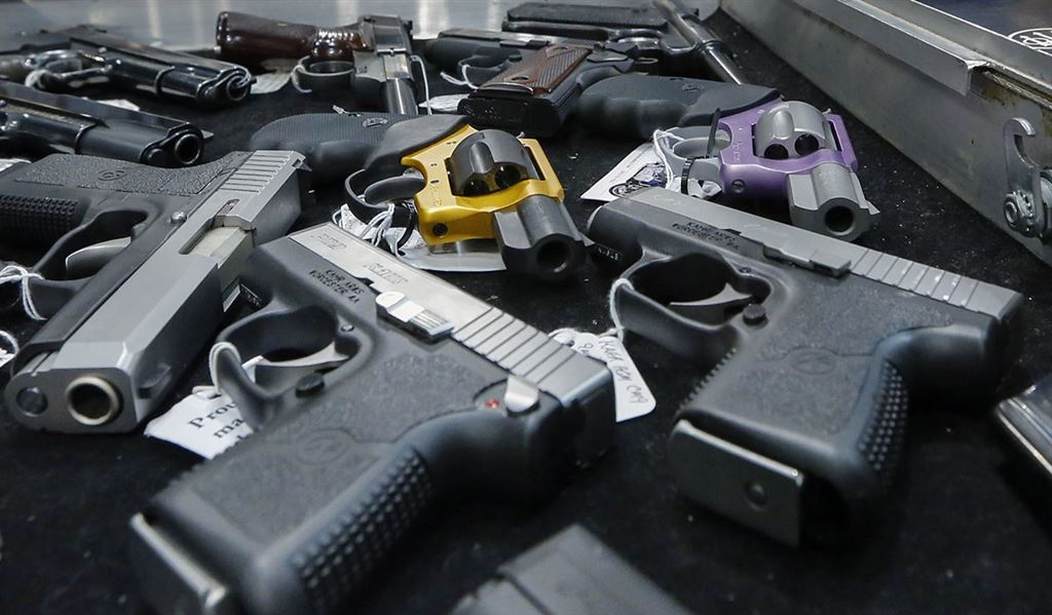I don’t expect a balanced approach from an op-ed. Why would I? Op-eds are opinion pieces, and people aren’t that balanced in their approaches to most things. They approach them through a partisan lens and basically reiterate and reinterpret what their side already thinks.
It is what it is.
But I came across an op-ed that, based on its title, acknowledges that guns will always be with us, then manages to get so many other things wrong it’s painfully hilarious.
What is it about guns that makes them particularly attractive to some men? The poet William Matthews has gone so far as to call guns “the jewelry of men.” He may have a point.
Maybe part of the attraction is that they even the odds in life, or seem to. Al Capone identified guns as equalizers, and inadvertently or not, single-minded pro-gun activists have made a creed of a word coined by a convicted, syphilitic murderer and crime-boss.
In just the Second paragraph, we have this nonsense.
There’s no link to Capone saying this, though I’m not inclined to doubt that he did, but this is an attempt at guilt by association. Capone said something that sort of sounds similar to what a lot of us say, so it creates a link.
However, where most of us are deriving our statement from isn’t the notorious gangster but Samuel Colt. “God created men equal, Col. Colt made them equal…” dates from well before Capone was a twinkle in his daddy’s eye.
But who cares about that when you can try and imply that we’re all just following a gangster’s lead?
Moving on…
But a third tradition now exists with them — the armed citizen. Making light of the Second Amendment’s insistence that citizens may possess firearms when involved with militias, gun-owners now do so as individuals because the Supreme Court has confirmed their right as settled law
This nonsense again?
The Second Amendment makes no such insistence. Yes, it mentions the militia, but it also specifically protects the people’s right to keep and bear arms. The people. That has been interpreted to mean all people in every other right preserved in the Constitution. Why would it just apply to the militia in this one instance?
The short answer is that it doesn’t. That’s why the Supreme Court ruled it was an individual right.
One of the regrettable attitudes created in a society where civilians can be so easily and heavily armed is that one’s fellow citizens are no longer seen as neighbors, but possible adversaries with whom you may have to deal lethally at some point. I leave aside the concomitant vigilante mentality that goes with this together with the belief that the righteous gun-owner is willing to fight the government itself if his Second Amendments rights (as he sees them) are not respected.
Except that’s literally not the case.
Oh, there are potential adversaries out there, sure. That doesn’t change because one lacks firearms, though. We all know there are bad people who want to do bad things. These are the natural adversary of the law-abiding citizen.
But if you somehow think that your neighbors are potential adversaries simply because you and they might own guns, then you should probably get your head examined. The mere ability to defend themselves doesn’t make them my adversary simply because they have a gun. If anything marks them as such, it’s their attitudes and actions.
Again, that doesn’t change simply because one does or doesn’t have firearms.
Finally:
Without any further consideration of the basis for a gun-culture, what conclusions can be safely drawn from the annual harvest of gun-deaths as we have them? It seems to me that the facts make their own arguments.
In a study that graded countries for their record on gun control, the United States received a grade of D across the board. Japan, one of many that received an A, makes it illegal for citizens to own a firearm or sword. This makes weapon ownership there not a right but a crime. To ensure compliance, Japanese police are authorized to search any home where the presence of weapons is so much as suspected.
An essentially gunless society like Japan (and there are others) has an average of 30 gun-deaths a year, while the United States has as many as 80 per day. It seems logical to conclude that widespread gun-ownership just might have something to do with the death rate.
Again, like so many others, the author here is looking at only part of the picture.
As we’ve noted before, the non-gun homicide rate here in the US is significantly higher than the total homicide rate in Japan. If it were simply a matter of guns, we’d expect to see our non-gun homicide rate on par with other developed nations’ non-gun homicide rates. Instead, we see something very different.
So basically, this author comes to the correct conclusion, but he’s lamenting the fact, not celebrating it.
He should probably rethink that position, though, because this is just part of the faulty “reasoning” he used to come to that conclusion.








Join the conversation as a VIP Member